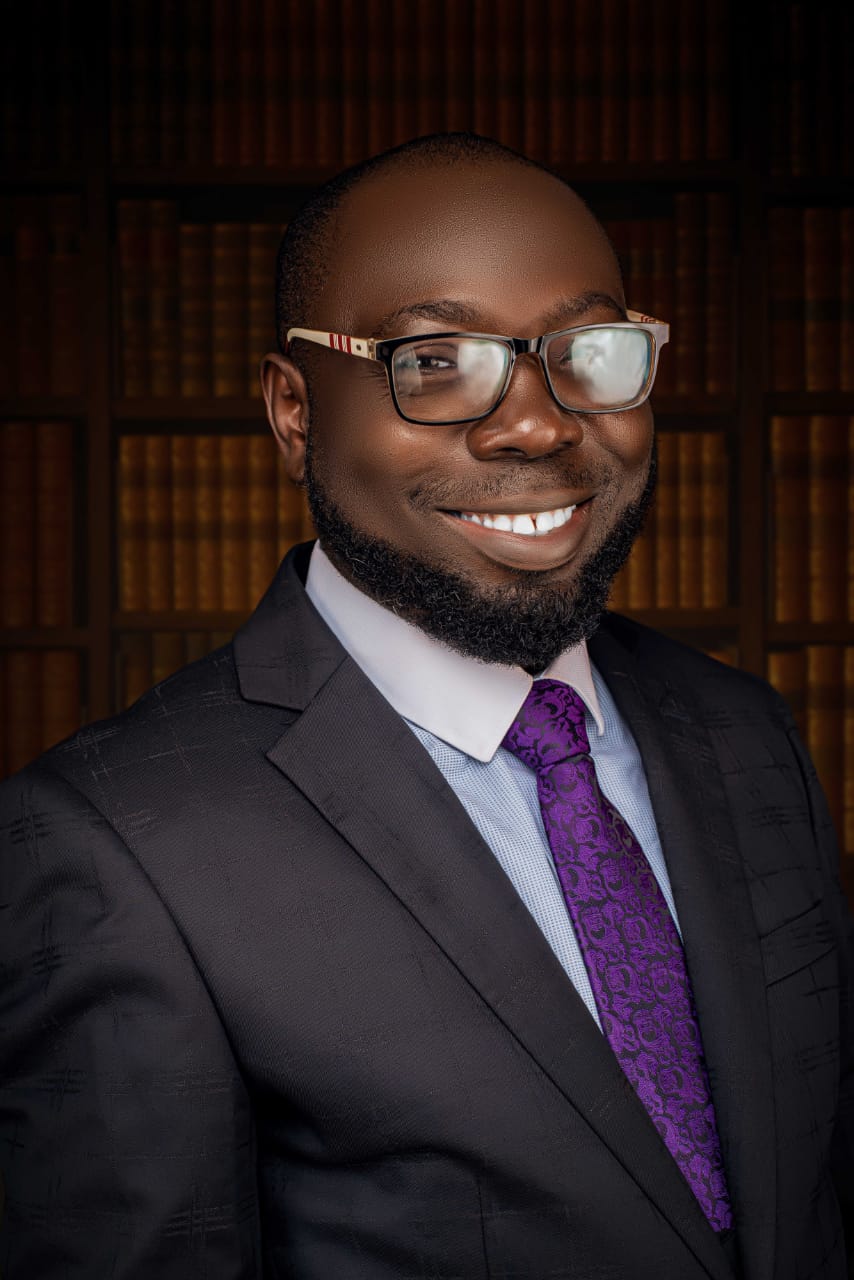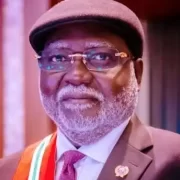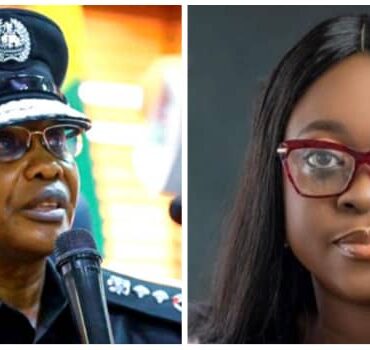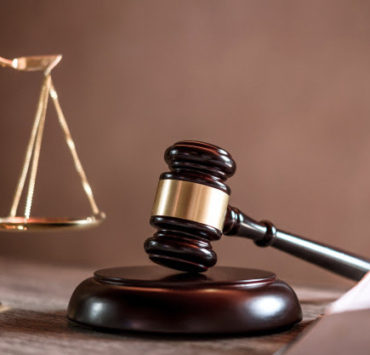FRIDAY & ORS V. GOVERNOR OF ONDO STATE: On Proper remedy where elected official illegally removed from office cannot not be reinstated. An insight into the decision of the Supreme Court therein.

Lawyard is a legal media and services platform that provides…
Citation: (2022) 16 NWLR PT. 1857 AT 586.
PARTIES IN FULL:
Courtesy: Moruff O. Balogun Esq.
Facts:
The appellants were elected as Chairmen of Local Government Councils in Ondo State on 15th December 2007 in an election organized and conducted under the administration of the 1st respondent’s predecessor, Dr. Olusegun Agagu, and were inaugurated on 17th December 2007 for a term of three years each. Each council was constituted by an elected chairman, elected vice-chairman, and elected councilors. However, on 4th March 2009, soon after the 1st respondent was sworn in as Governor of Ondo State, he dissolved the 18 Local Governments councils headed by the appellants.
The appellants challenged the dissolution of their councils by an originating summons dated 19th March 2009. They sought the determination of some questions bordering on Section 7 of the Constitution of the Federal Republic of Nigeria, 1999; section 12(4) of the Local Government (Amendment) Law, 2007; and the act of unilateral dissolution of the 18 Local Government Councils in Ondo State by the 1st respondent as then Governor of Ondo State. The respondents joined issues on the pleadings and also counter-claimed.
At the conclusion of hearing, the trial court found as a fact that the respondents contravened section 12(4) of the Local Government Administration, Election and Allied Matters (Amendment) Law of 2007 in the dissolution of the Local Government Councils, it nonetheless dismissed the appellants’ claims as well as granted the respondents’ counter-claim.
Dissatisfied, the appellants appeal to the Court of Appeal. The respondents also cross-appealed against the finding of the trial court that the respondents violated section 12(4) of the Local Government Administration Election and Allied Matters (Amendment) Law, 2007. In its judgment, the Court of Appeal affirmed the decisions of the trial court on the main claim and counter-claim in all respects.
Further dissatisfied, the appellants appealed to the Supreme Court. In determining the appeal, the Supreme Court considered amongst others, the following constitutional and statutory provisions:
Section 7(1) and 272 of Constitution of the Federal Republic of Nigeria, 1999 (as amended) –
“7(1) the system of local government by democratically elected local government councils is under this Constitution guaranteed and accordingly the Government of every State shall, subject to section 8 of this Constitution, ensure their existence under a Law which provides for the establishment, structure, composition, finance and function of such councils.”
“272(1) Subject to the provisions of section 251 and other provisions of this Constitution, the High Court of a State shall have jurisdiction to hear and determine any civil proceedings in which the existence or extent of legal right, power, duty, liability, privilege, interest, obligation or claim is in issue or to hear and determine any criminal proceedings involving or relating to any penalty, forfeiture, punishment or other liability in respect of an offence committed by any person.
(2) The reference to civil and criminal proceedings includes a reference to the proceedings which originate in the High Court of a State and those that are brought before the High Court to be dealt with by the Court in the exercise of its appellate or supervisory Jurisdiction.
Sections 140, 141, 144, and 146 of the Electoral Act, 2006 –
“140(1) No election and return at an election under this Act shall be questioned in any manner order than by a petition complaining of an undue election or undue return (in this Act referred to as an ‘election petition’) presented to the competent tribunal or court in accordance to the provisions of the Constitution or of this Act, and in which the person elected or returned is joined as a party.”
“141. An election petition under this Act shall be presented within thirty (30) days from the date the result of the election is declared.”
1 44(1) Only a candidate in an election and a political party that participant in the election can question the election.”
“146(1) An election shall not be liable to be invalidated by reason of non-compliance with the provisions of this Act if it appears to the Election Tribunal or Court that the election was conducted substantially in accordance with the principles of this Act and that the non-compliance did not affect substantially the result of the election.”
Section 2(a) of the Public Officers (Protection) Law of Ondo State, 2006 –
“The action, prosecution or proceedings shall not lie or be constituted unless it is commenced within three months next alter the act, neglect, or default complained of or in case of continuance of damage or injury, within three months after ceasing thereof.”
Section 88(1)(a) of the Local Government System, Establishment and Administration Law, 2006 –
“88(1) There shall be established in the State, one or more Election Tribunals to be known as Local Government Election Tribunals in this Law referred to individually as an Election Tribunal which shall, to the exclusion of any other Court or Tribunal, have original jurisdiction to hear and determine any question as to whether:
Any person has been validly elected at an election under this Law….”
Section 12(4) (1) and (2) of the Local Government (Amendment) Law, 2007-
“12(4) (1) The Governor shall, acting on sanction of resolution supported by two-third majority of the house of Assembly dissolve any local government and appoint an interim committee to oversee its affairs for a period of not more than three months or for such longer or further period as the house of Assembly may determine.
(2) The House of Assembly may whether or not upon request by the Governor in any other case by two-third majority establish an interim Local Government to oversee the affairs of any Local Government for a period not exceeding three months in the first instance.”
Section 9 of the High Court Law of Ondo State, 2006 –
“To the extent that such jurisdiction may be conferred by the State Legislature, the High Court shall be a superior court of record and in addition to any other jurisdiction conferred by this or any other law or Act shall, within the limits and subject to the jurisdiction, powers and authorities which are vested in or capable of being exercised by Her Majesty, High Court England”
On Proper remedy where elected official illegally removed from office cannot not be reinstated-
When an elected official unconstitutionally and illegally removed from his office cannot effectively be reinstated and restored to his office, the principle of ubi jus ibi remedium the court will apply to grant alternative prayers for monetary entitlements due to the officer. In the instant case, the 1st respondent did not comply with the Local Government, etc. (Amendment) Law, 2007, when he purportedly dissolved the 18 Local Government Councils in Ondo State. But since the appellants could not be re-instated, they were entitled to their alternative reliefs for the salaries and allowances due to them from their respective Local Government Councils for the unexpired and unexhausted term of office; that is, the period of 23 months beginning from 4th March 2009 when they were unconstitutionally and illegally removed from their respective elective
offices to the 10th December 2010 when their terms of office would have lapsed by efflux ion of time; coupled with their salaries and allowances for the month of February 2009, which were outstanding as at 4th March 2009.
On Illegality of self help-
Self-help is illegal under the rule of lav. One of the basic requirements of the rule of law is that all authorities and persons must submit the resolution of their disputes to the due process of law and not adopt self-help or other methods contrary to law to resolve such disputes.
Per AGIM, J.S.C. stated as follows:
“Generally, self help and lawless action cannot be justified under any guise. Coming from the head of the executive arm of the Government of a state it should not be tolerated even for a split of a second. That should be paramount issue for decision in this case and not whether the appellants’ election was flawed as a way of justifying the self-help and lawless action of the 1st Defendant. The judicial approach of the lower courts to the determination of this would encourage such self-help and lawless action by a State Governor and the like impunity. The fact that the executive arms of Governments in Nigeria have a ready proclivity to violate the Constitution and have contempt for the rule of law is common Knowledge and is not reasonably open to question. Therefore, the executive arm of Government constitutes the greatest threat to the Constitution, the rule of law and democratic governance. What was more prominent and demanding or priority treatment in this case was the self-help and lawless action of the 1st respondent. The two lower courts failed in their primary duty as courts to give it priority attention and thereby encouraged the immorality and illegality that self-help is justified to remedy a wrongful act of another. If this practice is accepted as legitimate then the rule of law and the constitutional order would be destroyed and there would be an emerging order of anarchy and insecurity as is already happening. The mindless abuse of power by the 1st respondent exposed him as unfit to hold public office. The counter claim should have been dismissed as a disapproval of the self-help and lawless action of the 1st respondent.”
On who can decide whether a political office holder was democratically elected or not-
It is the courts that can decide whether a political office holder was democratically elected or not. In the instant case, it was obvious that the respondents’ counter-claim was a process filed to obtain a judicial ratification of the 1st respondent’s self help and illegal action. The 1st respondent usurped the judicial powers of the courts, decided that the election of the appellants was invalid and that they could not lay claim to have any time legally presided over the Local Government Councils, and on the basis or that decision disregarded section 7 of the Constitution of the Federal Republic of Nigeria, 1999 (as amended) and section 12 (4) (i) of the Government (Amendment) Law of Ondo state in dissolving the Local Government Councils.
“Upon the appellants’ challenging his illegal action in court, the 1st respondent resorted to filing counter-claim to secure judicial approval of what he had already decided. The counter-claim seeks to get the courts to judicially rubber stamp the decision and action of the 1st respondent and adopt it as a judicial act. I am surprised that none of the two courts below rose up to the occasion to nullify the action of the 1st respondent that endangers the rule of law, the Constitution and the relevance of tie judicature. The trial court casually held that the respondent’s action is in breach of section 12(4) (i) and (ii) of the Local Government (Amendment) LA 2007. The Court of Appeal inexplicably could not go beyond affirming that holding and deciding that it is not for the respondents to determine if any political office holder has been democratically elected or not, as that it is the duty of the courts. The trial court rubber stamped the decision and action of the respondent and adopted it as the decision of the court by dismissing the appellants’ claim and thereby rendering ineffectual, its casual holding that the action of the 1st respondent violated section 12(4)(i) and (ii) of the Local Government (Amendment) Law. The Court of Appeal affirmed the judicial approval of the self-help and lawlessness action of the 1st respondent.”
On Procedure for dissolution of local government councils-
By virtue of SECTION 12(4)(1) and (2) of the Local Government (Amendment) Law of Ondo State, 2007, the Governor shall, acting on sanction of resolution supported by two-third majority of the House of Assembly, dissolve any local government and appoint an interim committee to oversee its affairs for a period of not more than three months or for such longer or further period as the House of Assembly may determine. The House of Assembly may whether or not upon request by the Governor in any other case by two-third majority establish an interim Local Government to oversee the affairs of any Local Government for a period not exceeding three months in the first instance.
Courtesy:
Moruff O. Balogun Esq.
Vice Chairman,NBA Ijebu Ode branch.
08052871414
09121207712 [WHATSAPP]
Lawyard is a legal media and services platform that provides enlightenment and access to legal services to members of the public (individuals and businesses) while also availing lawyers of needed information on new trends and resources in various areas of practice.













